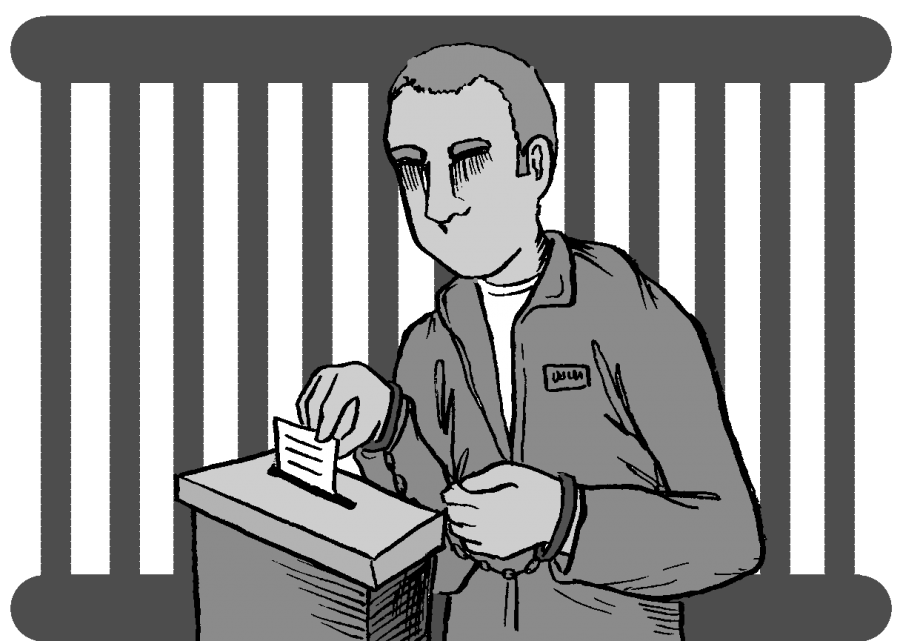As the 2020 elections ramp up, UT students face state-sanctioned voter suppression in the form of voter ID laws, paper voter registration and insufficient polling locations. Felon disenfranchisement is a lesser known and stronger voter suppression tool wielded by the Texas Legislature.
In Texas, an individual convicted of a felony has their voting rights revoked until they are “off paper.” This means they may reregister to vote only after they have completed all terms of their sentence, such as incarceration, probation and parole. When determining representation, incarcerated individuals will still be counted despite not being allowed to vote.
This state law is supported by the Supreme Court case Richardson v. Ramirez, which held that even “disenfranchising convicted felons who have completed their sentences and paroles, does not violate the Equal Protection Clause.”
Although we are constitutionally permitted to disenfranchise felons, let us now consider why we do so. There are two immediate justifications for revoking the voting rights of an individual convicted of a felony: We would like to punish them and we do not trust their judgment in casting a vote.
However, disenfranchisement based on any felony conviction is an ineffective punishment. It holds no deterring effect on future crime because voting rights are not cherished highly enough to outweigh the incentives to commit a crime. It also holds no rehabilitating effect because suspending voting rights does not teach one about their civic duty — it only further removes them from society.
If we are committed to denying suffrage as a penalty for crime, we could better highlight the penal effect by only imposing voting restrictions in specific cases where it seems likely to alter a specific individual’s behavior.
The claim that we disenfranchise those with felony convictions because we distrust their voting judgment is also suspect. Nothing about incarceration, probation or parole rehabilitates the individual to treat their vote differently. Therefore, if we are willing to restore voting rights after an individual is off paper as we currently do, we should not revoke them in the first place.
These justifications, however, both obscure the real reason for felon disenfranchisement: racism. Institutional racism utilizes felon disenfranchisement to preserve white voting power in Texas with an ostensibly race-neutral policy. In particular, the criminal justice system disproportionately incarcerates Black and Latino populations.
Whites, Blacks and Latinos each make up roughly a third of the Texas incarcerated population, which totals about 250,000 people, despite Blacks only representing 12% of the overall Texas population.
This disproportionate incarceration of Black individuals is implemented through a racially biased criminal justice system. After locking up Black and Latino individuals, prison facilities grant the voting power of the disenfranchised to the communities within which the prisons are built. This is because the state will revoke the voting rights of the incarcerated individual but still count them as part of the community when determining how much representation an area receives in elections.
The Houston Chronicle reports that 70% of prisons during the United States prison boom were built in rural communities. This geographic setup allows white rural communities in Texas to skew electoral representation in their favor by absorbing the voting power of incarcerated communities of color.
The Texas Legislature suppresses voters with poorly justified felon disenfranchisement statutes, which perpetuate disproportionate racial representation in the electorate. With that in mind, any voting rights conversation must acknowledge the institutional racism of felon disenfranchisement.
Shah is a computer science and mathematics senior in the Turing Scholars Program.





















